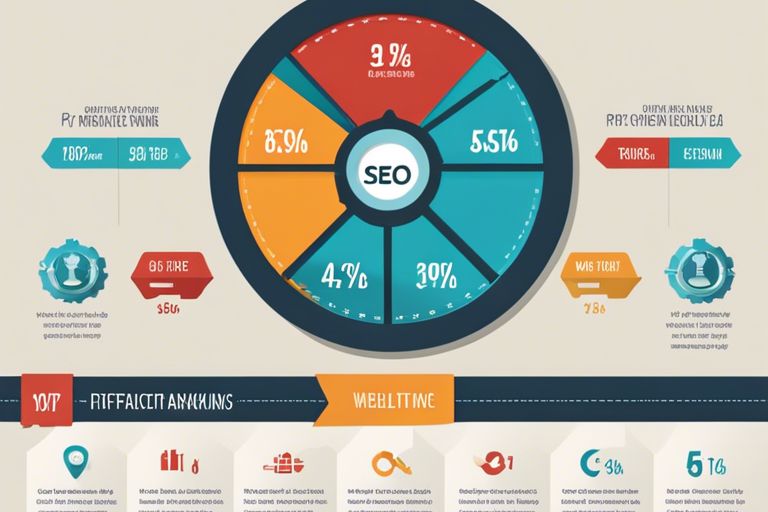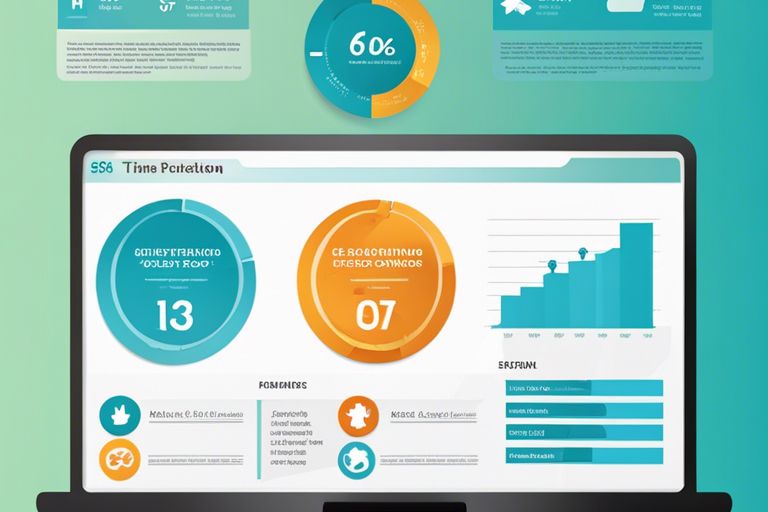With respect to enhancing your website’s Search Engine Optimisation (SEO), incorporating user ratings can have a significant impact. Not only do user ratings boost credibility and trustworthiness, but they also increase user engagement and interaction. Search engines like Google take into account these factors, boosting your website’s visibility in search results. In this blog post, we will examine into the importance of user ratings for SEO and how you can leverage them to improve your website’s rankings. To further enhance your SEO knowledge, check out our detailed article on Improve SEO: 11 Steps to Improve Your Rankings.
Key Takeaways:
- Increased credibility: User ratings on your website can enhance credibility and trustworthiness amongst users and search engines.
- Improved SEO performance: Positive user ratings can lead to higher search engine rankings, driving more organic traffic to your site.
- Enhanced user experience: Encouraging user ratings can help in gaining valuable feedback, which can be used to improve your website’s user experience and overall performance.
Strategies for Encouraging User Ratings
Simplifying the Rating Process
One of the key strategies for encouraging user ratings on your website is to simplify the rating process. Users are more likely to leave feedback if the process is quick and effortless. Implement a clear and easily accessible rating system on your website, preferably with a star rating or a simple thumbs up/thumbs down option. Keep the overall design of the rating system clean and user-friendly to encourage maximum participation.
Furthermore, consider reducing the number of required fields when leaving a rating. The simpler the process, the higher the chances of users engaging with it. Additionally, provide clear instructions on how to leave a rating to eliminate any confusion and make the process as straightforward as possible.
Incentivizing Feedback
Another effective strategy for encouraging user ratings is to incentivise feedback. Offer users a small reward or discount for leaving a review. This could be in the form of a discount code for their next purchase, entry into a prize draw, or even just a heartfelt thank you message. By providing an incentive, you are more likely to receive valuable feedback from users who may not have otherwise taken the time to leave a review.
It is important to note that while incentivising feedback can significantly boost the number of reviews on your website, it is crucial to maintain the integrity of the reviews. Ensure that the incentives do not sway the content of the feedback, and that all reviews – positive or negative – are welcomed and valued.
Integrating Ratings into SEO Efforts
Pertaining to maximising your website’s SEO potential, integrating user ratings can play a crucial role. User ratings not only provide valuable feedback to your visitors but also help search engines understand the quality and relevance of your content. By incorporating user ratings strategically, you can boost your website’s visibility and credibility in search engine rankings.
Utilizing Structured Data for Rich Snippets
One effective way to enhance your SEO efforts through user ratings is by utilising structured data to generate rich snippets in search results. Rich snippets display additional information, such as star ratings and reviews, directly on the search engine results page. By marking up your content with structured data, you can increase the chances of attracting clicks from users looking for highly-rated products or services.
Leveraging User Ratings for Content Improvement
Another valuable aspect of integrating user ratings into your SEO strategy is the opportunity to leverage this feedback for content improvement. By analysing user ratings and reviews, you can gain insights into what aspects of your website are performing well and which areas require enhancement. This data can help you tailor your content to better meet the needs and preferences of your target audience, ultimately improving user experience and driving higher engagement.
By actively engaging with user ratings and using them as a guide for content development, you can continuously optimise your website for both search engines and users. This approach not only demonstrates your commitment to delivering high-quality content but also signals to search engines that your website is relevant and valuable to visitors, further strengthening your SEO efforts.
Analysing User Rating Data
In the matter of maximising your website’s SEO potential, analysing user rating data is crucial. User ratings and feedback provide valuable insights into how your audience perceives your content and services. By analysing this data, you can identify areas for improvement and optimisation on your website.
Tools for Monitoring Ratings and Feedback
There are various tools available for monitoring user ratings and feedback on your website. Platforms like Google Analytics and Hotjar can provide detailed analytics on user behaviour and satisfaction levels. These tools allow you to track user engagement, identify popular content, and pinpoint areas where users may be facing challenges.
Utilising these tools effectively can help you gain deeper insights into how users interact with your website. By monitoring ratings and feedback, you can leverage this data to make informed decisions that enhance user experience and ultimately boost your SEO performance.
Using Data to Drive SEO Strategy Adjustments
By utilising user rating data, you can strategically adjust your SEO tactics to better meet the needs and expectations of your audience. Analysing trends in user ratings can help you identify content areas that require improvement or optimisation. This data-driven approach enables you to tailor your SEO strategy to align with what your users find most valuable.
Implementing changes based on user rating data can dramatically improve your website’s performance in search engine rankings. By responding to user feedback and making necessary adjustments, you can enhance user satisfaction and solidify your website’s credibility in the eyes of both users and search engines.
Ethical Considerations and Best Practices
When implementing user ratings on your website to boost SEO, it is crucial to consider ethical considerations and best practices to ensure credibility and fairness. By following ethical guidelines, you can enhance user experience and build trust with your audience.
Avoiding Manipulation of Ratings
Avoiding manipulation of ratings is imperative to maintain the integrity of the user feedback system. This includes preventing fake reviews, incentivising positive ratings, or artificially boosting scores. Such actions not only deceive users but can also harm your website’s reputation and SEO rankings. It is important to implement stringent measures to detect and remove fraudulent activities to uphold the authenticity of user ratings.
Manipulating ratings can lead to severe consequences, such as penalties from search engines or legal repercussions, damaging your website’s credibility in the long term. It is crucial to foster a genuine environment where users feel confident in sharing their honest opinions and experiences. Upholding integrity in user ratings is key to establishing trust and credibility with your audience.
Maintaining Transparency with Users
Maintaining transparency with users is paramount when utilising user ratings for SEO purposes. Users should be informed about how ratings are collected, verified, and displayed on your website. Clearly communicating the criteria for ratings and any moderation processes helps establish trust and authenticity.
By providing users with visibility into the rating process, you demonstrate a commitment to openness and fairness. Transparency builds credibility and encourages users to engage with the rating system, leading to more valuable feedback and enhancing the overall user experience on your website.
Maximising SEO Potential Through User Ratings on Your Website
Utilising user ratings on your website is crucial for maximising your SEO potential. Positive user ratings can significantly improve your website’s credibility and trustworthiness in the eyes of search engines, leading to higher rankings in search results. Encouraging user engagement through ratings and reviews can also increase the amount of user-generated content on your site, which is favoured by search engines for its fresh and relevant nature. By consistently monitoring and responding to user ratings, you can foster a positive relationship with your audience and build a strong online reputation that will further boost your website’s SEO performance. Incorporating user ratings into your SEO strategy is a simple yet effective way to enhance your online visibility and drive more organic traffic to your site.
FAQ
Q: Why are user ratings important for maximising SEO potential on a website?
A: User ratings play a crucial role in improving SEO as they provide valuable feedback to search engines, making your website more relevant to users’ queries.
Q: How can user ratings impact the visibility of a website on search engines?
A: Websites with higher user ratings tend to rank higher on search engine results pages (SERPs), increasing visibility and attracting more organic traffic.
Q: What are the key factors to consider when implementing user ratings for SEO?
A: Factors such as user engagement, authenticity of ratings, and structured data markup are imperative for leveraging user ratings effectively for SEO purposes.
Q: How can businesses encourage customers to leave positive ratings on their website?
A: Providing exceptional products or services, offering incentives for leaving feedback, and creating a user-friendly rating system can all help encourage customers to leave positive ratings.
Q: How often should businesses monitor and respond to user ratings for SEO benefits?
A: Businesses should regularly monitor user ratings, promptly address any negative feedback, and engage with customers to show that their opinions are valued, thus enhancing the SEO potential of their website.




